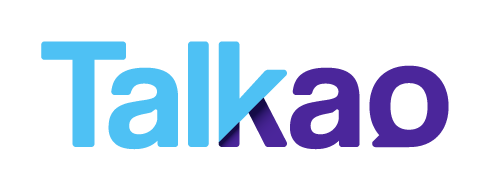
International language certificates are essential documents in many contexts. They are often officially recognized credentials that certify your language proficiency. But beyond that, they can also serve as proof of competence in various settings. In many cases, they are a mandatory requirement for immigration purposes. Likewise, they can be a valuable asset to include on your résumé. In short, these certificates are something you’ll likely encounter at some point in your language-learning journey.
For many people, international language certifications represent a real challenge. Preparing for these exams requires time, dedication, and thorough study in order to meet the required level of proficiency. These tests typically come with different levels of difficulty, depending on the level you aim to achieve.
Today, we’ll explore the importance of international language certificates in various scenarios. We’ll examine their role in professional, academic, and immigration settings. In addition, we’ll take a closer look at how they apply to some of the most commonly studied languages today. Finally, we’ll show you how AI-powered predictive translation tools can become your best ally when preparing for certification exams.
What are international language certificates and why are they important?
We live in an increasingly globalized world—there’s little doubt about that, right? In this highly connected society, speaking a second or even third language is no longer a luxury, but a necessity. However, simply claiming to speak a foreign language is no longer enough. Today, you need official proof of your language skills, and that’s where international language certificates come in.
In essence, these are globally recognized documents that validate your proficiency in a specific language. While we’ve previously discussed English language certifications, today we’ll shift our focus to other languages—specifically Spanish, Portuguese, French, Italian, and German. Not because they are more important, but because they are among the most in-demand in professional and academic settings. But before diving deeper, let’s first understand what international language certificates really are.
An official proof of proficiency
Put simply, an international language certificate is an official document recognized worldwide. It’s issued by an internationally accredited institution that assesses and verifies your language knowledge. In most cases, language certification exams categorize results into one or more levels of proficiency. These certificates are widely accepted by universities, companies, government agencies, and educational institutions across the globe.
Through a series of standardized tests, these certifications offer both qualitative and quantitative assessments. That means they typically evaluate your abilities in reading, writing, listening, and speaking. To achieve a certain level, you must complete a set of specific exams. Depending on the language, the final result may be a simple pass/fail outcome, or a graded scale indicating your level of proficiency in each skill area.
Most international language certificates used in Europe are based on common standards established by the Common European Framework of Reference for Languages (CEFR). This framework defines language proficiency levels, ranging from basic to near-native or bilingual. Based on the language being tested, you can obtain certifications from A1 (beginner) all the way to C2 (proficient/native-like).

Why do I need international language certificates?
This is a perfectly valid question—especially if you already speak a language fluently and communicate naturally in it. With today’s multi-platform instant translation technology, it’s easy to think you don’t need any official certification. I mean, why have a document that simply states your level in a given language? And yes, you’d be absolutely right to point out that nowadays you can learn almost any language from home. On top of that, AI-powered predictive translation tools are making communication easier than ever.
But—be careful! Because in many situations, you will need to prove your language proficiency officially. Here are some key areas where language certifications become essential:
The professional world: Stand out in a competitive job market
Would you like to work for an international company? Are you aiming for a better-paying job? Then you’ll need more than just a good interview—you’ll need verifiable proof of your language skills. And today, that proof comes in the form of internationally recognized language certificates.
These certifications have become a key differentiator in recruitment processes. Employers highly value multilingual communication skills, especially in languages spoken in their target markets. So much so that even for positions where a foreign language isn’t a strict requirement, having a certificate can tip the balance in your favor.
Moreover, many multinational companies and public institutions require an official certificate as a minimum qualification. These certificates must come from recognized and reputable institutions. In this sense, obtaining a language certificate is not just a recognition of your skills—it’s a direct investment in your professional future.
Languages in Academia: Unlock doors to universities worldwide
If you’re considering studying abroad, international language certificates are crucial. Whether you’re applying for an undergraduate degree, a master’s, or a PhD, one of the main entry requirements will be to prove your proficiency in the language of instruction.
These certificates don’t just help you gain admission into universities—they may also be necessary for exchange programs, international scholarships, or even for degree validation and recognition. So, if your goal is to study in another country, good grades alone aren’t enough—you’ll need to show you can function fluently in that language.
And that’s not all. Many countries require student visas, which allow you to stay in the country during your studies. In many of these visa processes, language certificates play a fundamental role. Now let’s look at another scenario where certifications are absolutely vital: immigration procedures.
Immigration processes: Certifications as legal requirements and integration tools
In many countries, proving language proficiency is a legal requirement for immigration. Whether you’re applying for a work visa, permanent residency, or citizenship, you’ll likely need to show that you can speak the national language. But why is this so important, especially in a world where technology allows us to communicate in any language at the touch of a button?
Here are the most common reasons countries give for requiring official language certificates:
Demonstrates communication ability
A foreign national who can speak the country’s official language is better equipped to integrate, work, and live independently.
Promotes cultural integration
Most countries are keen on helping newcomers adapt to local culture, customs, laws, and traditions. Language is a critical tool for that integration process.
Facilitates administrative interaction
Non-native speakers who can’t communicate effectively may struggle with public services and legal matters. Language proficiency enables smoother communication with government agencies.
In most countries around the world, language certificates are mandatory for certain immigration statuses, including temporary and permanent residency and naturalization.
So, which language certificates are most common?
At this point, you might be wondering: Which international language certificates are the most widely recognized?
The answer is not so simple. There is no single universal certificate that applies to every language and every country. Each language has its own certifications, and each country its own legal framework. That said, depending on the language, there are several well-known and frequently accepted international language certificates around the world.
International Spanish language certificates
Spanish, one of the most widely spoken languages in the world, offers two main certifications:
DELE (Diploma of Spanish as a Foreign Language)
Managed by the Instituto Cervantes on behalf of the Spanish Ministry of Education, the DELE is one of the most globally recognized Spanish language certificates. It assesses language proficiency from A1 to C2, according to the Common European Framework of Reference for Languages (CEFR). This certificate is especially useful if you’re planning to work or study in Spain or Latin America. However, it’s important to note that many Latin American countries have their own certification systems, so it’s crucial to check with each country’s official institutions before starting any procedure.
SIELE (International Spanish Language Evaluation Service)
Unlike the DELE, the SIELE is taken entirely online and is valid for five years. It evaluates your level either globally or by individual skills: reading, listening, writing, and speaking. Like the DELE, the SIELE is valid in Spain, but not all Latin American countries recognize it. Always verify whether the certificate is accepted in the country where you plan to emigrate or apply for a job.
International Portuguese language certificates
If you’re learning Portuguese, there are several certification options, but one stands out due to its official status:
CAPLE (Centro de Avaliação de Português Língua Estrangeira)
Issued by the University of Lisbon, CAPLE aligns with the CEFR and covers levels A1 to C2. It is widely recognized by Portuguese and Brazilian institutions, and is valid for citizenship or residency procedures. Keep in mind that Portuguese is an official language in nine countries: Angola, Mozambique, Guinea-Bissau, Cape Verde, São Tomé and Príncipe, East Timor, and Macao. Each of these countries may have its own certification requirements.
Celpe-Bras
This is the official Portuguese language certificate issued by the Brazilian government. While it has less international presence than CAPLE, it is essential if you want to study or work in Brazil. It evaluates reading, writing, and oral production, and the results are classified into four levels: Intermediate, Upper Intermediate, Advanced, and Upper Advanced.
International French language certificates
French is an official language in more than 30 countries. The most recognized certifications include:
DELF (Diploma in French Language Studies) and DALF (Advanced Diploma in French Language)
These are issued by the French Ministry of Education and managed by France Éducation International. DELF covers levels A1 to B2, while DALF certifies C1 and C2 levels. These certificates are valid for life and are widely accepted by universities, companies, and government institutions in the French-speaking world.
TCF (Test of French Knowledge)
The TCF assesses your overall level of French in a single exam and is valid for two years. It is often required for immigration, academic admission, or job applications. While the TCF is recognized in France and most Francophone countries, it’s essential to confirm the specific requirements of the country where you intend to apply.
International Italian language certificates
Italy offers two official and widely used language certificates:
CELI (Certificate of Knowledge of the Italian Language)
Issued by the University for Foreigners of Perugia, CELI covers levels from A1 to C2. It is a solid option, especially for those seeking Italian citizenship.
CILS (Certification of Italian as a Foreign Language)
Provided by the University for Foreigners of Siena, CILS also follows CEFR levels and includes specialized certifications for migrant workers and children. It is an excellent choice if you’re planning to live or work in Italy.
International German language certificates
German is one of the most widely spoken languages in the European Union. The following are the primary certification options:
Goethe-Zertifikat
Issued by the prestigious Goethe-Institut, this certificate is recognized by employers, universities, and governmental bodies in Germany. It covers levels A1 to C2 and is valid for both immigration and academic purposes. It is arguably the most comprehensive and accessible German certificate for learners around the world.
TestDaF (Test of German as a Foreign Language)
This exam is designed for students who wish to enroll in a German university. It assesses levels B2 to C1 and is accepted by over 90 higher education institutions in Germany.

How to prepare for an international language certificate?
Obtaining an official language certificate requires preparation. Everyone learns differently and at their own pace. However, if you want to pass international language certification exams, proper preparation is essential. Here are some expert-recommended tips to help you succeed:
Assess your current level
Before registering for any exam, it’s important to understand your current proficiency level. You can take a free online placement test or visit a specialized language academy. Most official language institutes offer preparation apps, many of which are free and allow you to take non-binding practice exams. These trial tests will give you a clear idea of where you stand and what areas need improvement.
Study with official materials
Most exams provide guides, past papers, and mock exams. Practicing with official materials helps you become familiar with the exam format and boosts your chances of success. Remember the saying, “Practice makes perfect.” The more you practice, the quicker and more agile you’ll become.
Keep in mind that most of these exams are timed, so practicing under similar conditions will help you manage time more efficiently and improve your overall score.
Enroll in a preparation course
Many institutions offer specialized courses designed specifically for international language exams. A qualified instructor can help you develop specific skills such as writing, listening comprehension, and time management during the test.
Train your listening and speaking skills with technology
Listening comprehension and speaking fluently are among the most challenging parts of language exams. To improve these skills, try listening to podcasts, watching movies in the original language, and practicing with native speakers.
Also, don’t underestimate the power of AI translation tools.
Use technology like Talkao to improve key language skills
AI-driven platforms like Talkao’s predictive translation tools can be extremely helpful in your exam preparation:
Improve your listening and pronunciation
Listening to native speakers and hearing your own voice can help you fine-tune your ear. This leads to more confident and natural speech. Talkao’s video translator allows you to imitate native intonation and pronunciation patterns.
Boost your writing skills
Talkao’s AI text translation features help you improve your grammar, spelling, and sentence structure. Transcribing and rewriting texts is a powerful way to increase your writing speed and accuracy.
Enhance your reading ability
With AI translators and smart books from Talkao, you can improve your reading comprehension step by step—helping you earn higher scores on reading sections of the exam.
Gain confidence with every practice test
Last but not least, using these tools regularly will help you build confidence day by day. Every practice test or simulation boosts your self-assurance and prepares you mentally for exam day.










Newsletter